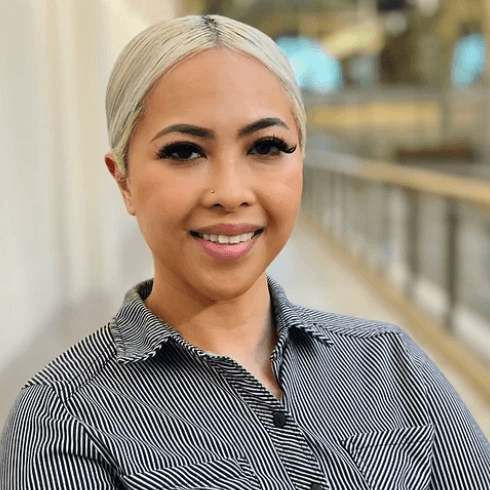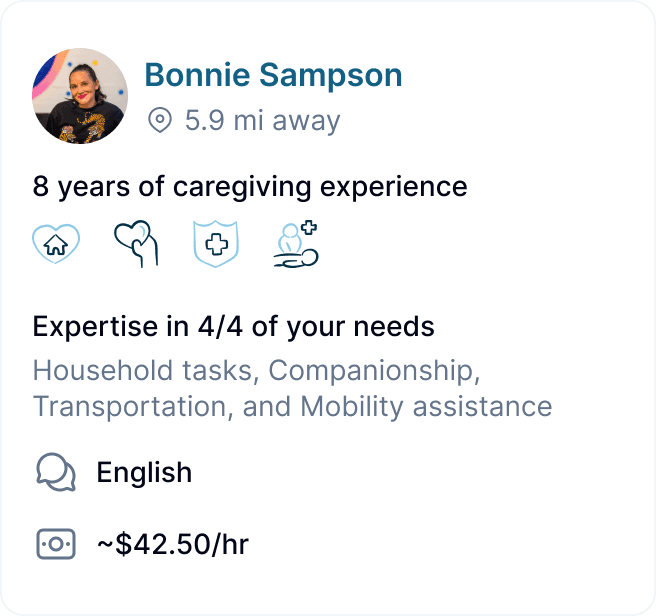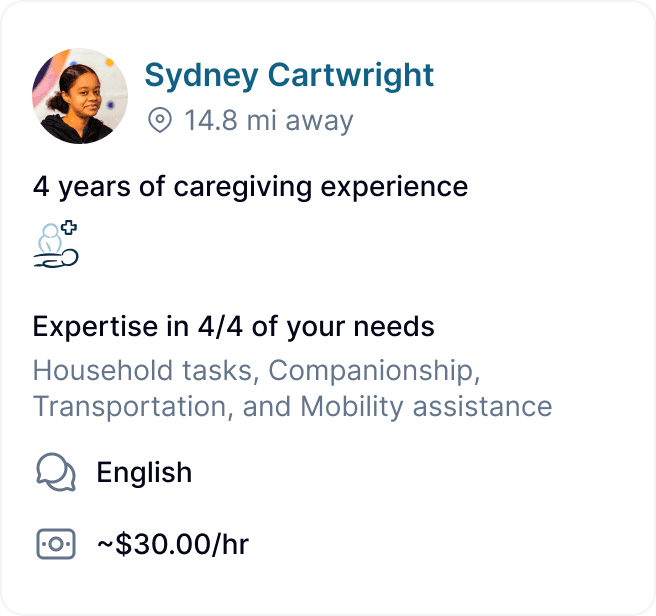Six Steps To Finding A Culturally Compatible Caregiver



Finding the right caregiver for senior in-home care goes beyond checking qualifications and experience, it’s about making sure the person providing care truly understands and respects the cultural background of the individual receiving it.
Cultural compatibility in caregiving is essential for fostering trust, enhancing communication, and ensuring the overall well-being of care recipients. In this guide, we’ll explore why cultural compatibility matters, what to look for, and practical steps you can take to find a caregiver who fits your family’s unique needs.
Understanding Cultural Compatibility in Caregiving
Cultural compatibility means that a caregiver is not only aware of, but also sensitive to, the values, beliefs, customs, and everyday practices of the person they are caring for. This goes beyond speaking the same language, it’s about recognizing dietary restrictions, religious observances, family dynamics, and even communication styles that are influenced by culture.
A culturally compatible caregiver can adapt their approach to honor these preferences, creating a more comfortable and effective caregiving environment. This sensitivity helps build trust, encourages open communication, and ultimately leads to better health outcomes and a higher quality of life for care recipients.
Unsure about what a caregiver does? Read here for more about the home care duties a caregiver might perform to support your loved one to age in place.
Why Cultural Compatibility Matters
Respect for Identity: When caregivers honor cultural traditions and practices, care recipients feel seen and respected. This validation of identity is crucial, especially for older adults who may feel vulnerable or isolated.
Improved Communication: Shared language and cultural norms reduce misunderstandings and make it easier for care recipients to express their needs and preferences.
Better Health Outcomes: Culturally competent care can help bridge gaps in understanding around health beliefs and practices, leading to more effective care and fewer disparities in outcomes.
Enhanced Trust: When care recipients see that their caregiver understands and respects their culture, they are more likely to engage in their care and build a trusting relationship.
Steps to Finding a Culturally Compatible Caregiver
1. Identify Your Cultural Needs and Preferences
Start by making a list of what matters most to your loved one. Consider:
Preferred language(s) for communication
Dietary restrictions or preferences
Religious or spiritual practices
Gender preferences for caregivers
Family involvement and decision-making roles
Customs around personal space, modesty, and daily routines
2. Seek Out Culturally Competent Providers
Look for care platforms or agencies that prioritize cultural competency. For example, Clara Home Care stands out by offering a network of vetted, background-checked caregivers and a matching process that considers your family’s unique needs and preferences. This approach includes a detailed questionnaire and input from care advisors to ensure the best possible match.
3. Ask the Right Questions
When interviewing potential caregivers or agencies, ask:
What experience do you have working with people from our cultural background?
How do you handle language barriers or communication differences?
Are you comfortable accommodating specific religious, dietary, or cultural practices?
Can you provide references from families with similar backgrounds?
4. Evaluate Compatibility Beyond Culture
While cultural compatibility is key, don’t overlook other factors:
Personality match: Shared interests and compatible temperaments can make the relationship smoother.
Skills and qualifications: Ensure the caregiver is trained to meet any medical or behavioral needs. (See here to learn more about the different certifications a caregiver might have).
Availability and flexibility: Make sure the caregiver’s schedule aligns with your needs.
5. Prioritize Ongoing Communication
Cultural competency is an ongoing process. Encourage open dialogue between your loved one and the caregiver. Regular check-ins help address any concerns and allow for adjustments as needed.
6. Leverage Technology and Support
Platforms like Clara Home Care make the process easier by using technology to match families with caregivers who not only meet practical needs but also align culturally.
Clara’s dedicated support team is available seven days a week to help with any issues that arise, ensuring a responsive and adaptable care experience.
Tips for a Successful Caregiver Match
Be Honest and Specific: The more information you provide about your loved one’s preferences and routines, the better the match will be.
Involve Your Loved One: Whenever possible, include the care recipient in interviews and decision-making. Their comfort and input are crucial—and can help to overcome resistance to starting home care.
Trial Periods: Consider starting with a trial period to ensure compatibility before making a long-term commitment.
Continuous Feedback: Keep the lines of communication open. If something isn’t working, don’t hesitate to ask for adjustments or a new caregiver.
Conclusion
Finding a culturally compatible caregiver is about more than convenience, it’s about dignity, respect, and quality of life. By taking the time to identify your loved one’s unique needs and working with a platform like Clara Home Care, you can ensure that care is not only competent, but also compassionate and culturally attuned. The right caregiver can make all the difference, turning daily assistance into a meaningful, supportive relationship that honors the individual at the heart of the care.
If you’re ready to begin your search, Clara Home Care offers a streamlined, supportive process to help you find a caregiver who feels like family, because everyone deserves care that respects who they are. Book a call with us to explore your care options or fill out our intake form. Our team is ready to help!
Finding the right caregiver for senior in-home care goes beyond checking qualifications and experience, it’s about making sure the person providing care truly understands and respects the cultural background of the individual receiving it.
Cultural compatibility in caregiving is essential for fostering trust, enhancing communication, and ensuring the overall well-being of care recipients. In this guide, we’ll explore why cultural compatibility matters, what to look for, and practical steps you can take to find a caregiver who fits your family’s unique needs.
Understanding Cultural Compatibility in Caregiving
Cultural compatibility means that a caregiver is not only aware of, but also sensitive to, the values, beliefs, customs, and everyday practices of the person they are caring for. This goes beyond speaking the same language, it’s about recognizing dietary restrictions, religious observances, family dynamics, and even communication styles that are influenced by culture.
A culturally compatible caregiver can adapt their approach to honor these preferences, creating a more comfortable and effective caregiving environment. This sensitivity helps build trust, encourages open communication, and ultimately leads to better health outcomes and a higher quality of life for care recipients.
Unsure about what a caregiver does? Read here for more about the home care duties a caregiver might perform to support your loved one to age in place.
Why Cultural Compatibility Matters
Respect for Identity: When caregivers honor cultural traditions and practices, care recipients feel seen and respected. This validation of identity is crucial, especially for older adults who may feel vulnerable or isolated.
Improved Communication: Shared language and cultural norms reduce misunderstandings and make it easier for care recipients to express their needs and preferences.
Better Health Outcomes: Culturally competent care can help bridge gaps in understanding around health beliefs and practices, leading to more effective care and fewer disparities in outcomes.
Enhanced Trust: When care recipients see that their caregiver understands and respects their culture, they are more likely to engage in their care and build a trusting relationship.
Steps to Finding a Culturally Compatible Caregiver
1. Identify Your Cultural Needs and Preferences
Start by making a list of what matters most to your loved one. Consider:
Preferred language(s) for communication
Dietary restrictions or preferences
Religious or spiritual practices
Gender preferences for caregivers
Family involvement and decision-making roles
Customs around personal space, modesty, and daily routines
2. Seek Out Culturally Competent Providers
Look for care platforms or agencies that prioritize cultural competency. For example, Clara Home Care stands out by offering a network of vetted, background-checked caregivers and a matching process that considers your family’s unique needs and preferences. This approach includes a detailed questionnaire and input from care advisors to ensure the best possible match.
3. Ask the Right Questions
When interviewing potential caregivers or agencies, ask:
What experience do you have working with people from our cultural background?
How do you handle language barriers or communication differences?
Are you comfortable accommodating specific religious, dietary, or cultural practices?
Can you provide references from families with similar backgrounds?
4. Evaluate Compatibility Beyond Culture
While cultural compatibility is key, don’t overlook other factors:
Personality match: Shared interests and compatible temperaments can make the relationship smoother.
Skills and qualifications: Ensure the caregiver is trained to meet any medical or behavioral needs. (See here to learn more about the different certifications a caregiver might have).
Availability and flexibility: Make sure the caregiver’s schedule aligns with your needs.
5. Prioritize Ongoing Communication
Cultural competency is an ongoing process. Encourage open dialogue between your loved one and the caregiver. Regular check-ins help address any concerns and allow for adjustments as needed.
6. Leverage Technology and Support
Platforms like Clara Home Care make the process easier by using technology to match families with caregivers who not only meet practical needs but also align culturally.
Clara’s dedicated support team is available seven days a week to help with any issues that arise, ensuring a responsive and adaptable care experience.
Tips for a Successful Caregiver Match
Be Honest and Specific: The more information you provide about your loved one’s preferences and routines, the better the match will be.
Involve Your Loved One: Whenever possible, include the care recipient in interviews and decision-making. Their comfort and input are crucial—and can help to overcome resistance to starting home care.
Trial Periods: Consider starting with a trial period to ensure compatibility before making a long-term commitment.
Continuous Feedback: Keep the lines of communication open. If something isn’t working, don’t hesitate to ask for adjustments or a new caregiver.
Conclusion
Finding a culturally compatible caregiver is about more than convenience, it’s about dignity, respect, and quality of life. By taking the time to identify your loved one’s unique needs and working with a platform like Clara Home Care, you can ensure that care is not only competent, but also compassionate and culturally attuned. The right caregiver can make all the difference, turning daily assistance into a meaningful, supportive relationship that honors the individual at the heart of the care.
If you’re ready to begin your search, Clara Home Care offers a streamlined, supportive process to help you find a caregiver who feels like family, because everyone deserves care that respects who they are. Book a call with us to explore your care options or fill out our intake form. Our team is ready to help!
Finding the right caregiver for senior in-home care goes beyond checking qualifications and experience, it’s about making sure the person providing care truly understands and respects the cultural background of the individual receiving it.
Cultural compatibility in caregiving is essential for fostering trust, enhancing communication, and ensuring the overall well-being of care recipients. In this guide, we’ll explore why cultural compatibility matters, what to look for, and practical steps you can take to find a caregiver who fits your family’s unique needs.
Understanding Cultural Compatibility in Caregiving
Cultural compatibility means that a caregiver is not only aware of, but also sensitive to, the values, beliefs, customs, and everyday practices of the person they are caring for. This goes beyond speaking the same language, it’s about recognizing dietary restrictions, religious observances, family dynamics, and even communication styles that are influenced by culture.
A culturally compatible caregiver can adapt their approach to honor these preferences, creating a more comfortable and effective caregiving environment. This sensitivity helps build trust, encourages open communication, and ultimately leads to better health outcomes and a higher quality of life for care recipients.
Unsure about what a caregiver does? Read here for more about the home care duties a caregiver might perform to support your loved one to age in place.
Why Cultural Compatibility Matters
Respect for Identity: When caregivers honor cultural traditions and practices, care recipients feel seen and respected. This validation of identity is crucial, especially for older adults who may feel vulnerable or isolated.
Improved Communication: Shared language and cultural norms reduce misunderstandings and make it easier for care recipients to express their needs and preferences.
Better Health Outcomes: Culturally competent care can help bridge gaps in understanding around health beliefs and practices, leading to more effective care and fewer disparities in outcomes.
Enhanced Trust: When care recipients see that their caregiver understands and respects their culture, they are more likely to engage in their care and build a trusting relationship.
Steps to Finding a Culturally Compatible Caregiver
1. Identify Your Cultural Needs and Preferences
Start by making a list of what matters most to your loved one. Consider:
Preferred language(s) for communication
Dietary restrictions or preferences
Religious or spiritual practices
Gender preferences for caregivers
Family involvement and decision-making roles
Customs around personal space, modesty, and daily routines
2. Seek Out Culturally Competent Providers
Look for care platforms or agencies that prioritize cultural competency. For example, Clara Home Care stands out by offering a network of vetted, background-checked caregivers and a matching process that considers your family’s unique needs and preferences. This approach includes a detailed questionnaire and input from care advisors to ensure the best possible match.
3. Ask the Right Questions
When interviewing potential caregivers or agencies, ask:
What experience do you have working with people from our cultural background?
How do you handle language barriers or communication differences?
Are you comfortable accommodating specific religious, dietary, or cultural practices?
Can you provide references from families with similar backgrounds?
4. Evaluate Compatibility Beyond Culture
While cultural compatibility is key, don’t overlook other factors:
Personality match: Shared interests and compatible temperaments can make the relationship smoother.
Skills and qualifications: Ensure the caregiver is trained to meet any medical or behavioral needs. (See here to learn more about the different certifications a caregiver might have).
Availability and flexibility: Make sure the caregiver’s schedule aligns with your needs.
5. Prioritize Ongoing Communication
Cultural competency is an ongoing process. Encourage open dialogue between your loved one and the caregiver. Regular check-ins help address any concerns and allow for adjustments as needed.
6. Leverage Technology and Support
Platforms like Clara Home Care make the process easier by using technology to match families with caregivers who not only meet practical needs but also align culturally.
Clara’s dedicated support team is available seven days a week to help with any issues that arise, ensuring a responsive and adaptable care experience.
Tips for a Successful Caregiver Match
Be Honest and Specific: The more information you provide about your loved one’s preferences and routines, the better the match will be.
Involve Your Loved One: Whenever possible, include the care recipient in interviews and decision-making. Their comfort and input are crucial—and can help to overcome resistance to starting home care.
Trial Periods: Consider starting with a trial period to ensure compatibility before making a long-term commitment.
Continuous Feedback: Keep the lines of communication open. If something isn’t working, don’t hesitate to ask for adjustments or a new caregiver.
Conclusion
Finding a culturally compatible caregiver is about more than convenience, it’s about dignity, respect, and quality of life. By taking the time to identify your loved one’s unique needs and working with a platform like Clara Home Care, you can ensure that care is not only competent, but also compassionate and culturally attuned. The right caregiver can make all the difference, turning daily assistance into a meaningful, supportive relationship that honors the individual at the heart of the care.
If you’re ready to begin your search, Clara Home Care offers a streamlined, supportive process to help you find a caregiver who feels like family, because everyone deserves care that respects who they are. Book a call with us to explore your care options or fill out our intake form. Our team is ready to help!
More about finding care
More about finding care


Part-Time, Full-Time, Overnight, Split-Shift, Or Live-In: What Kind Of Care Schedule Do I Need?



Vanessa Bustos


What Does a Typical Caregiver Schedule Look Like and What Can You Personalize?



Vanessa Bustos


What Benefits Should I Offer a Private Caregiver?



Vanessa Bustos


How to Vet an Independent Caregiver Without an Agency



Clara Editorial Team


Hiring for Flexibility: Matching a Care Schedule to Your Loved One’s Life



Vanessa Bustos


How to Check Senior Caregiver References and What Questions to Ask



Vanessa Bustos


What Is the Average Cost of Nursing Home Care in California?



Jon Levinson


How Do I Find A Reliable Private Caregiver?



Vanessa Bustos


Navigating the Choices: Private In-Home Caregivers vs. Agency Care



Lowrie Hilladakis


Can a Dementia Patient Be Cared for at Home?



Lowrie Hilladakis
GEt started for free
Better care starts with Clara.
Find, hire, and pay top-notch caregivers without the headache for a price that fits your budget.



GEt started for free
Better care starts with Clara.
Find, hire, and pay top-notch caregivers without the headache for a price that fits your budget.



GEt started for free
Better care starts with Clara.
Find, hire, and pay top-notch caregivers without the headache for a price that fits your budget.

